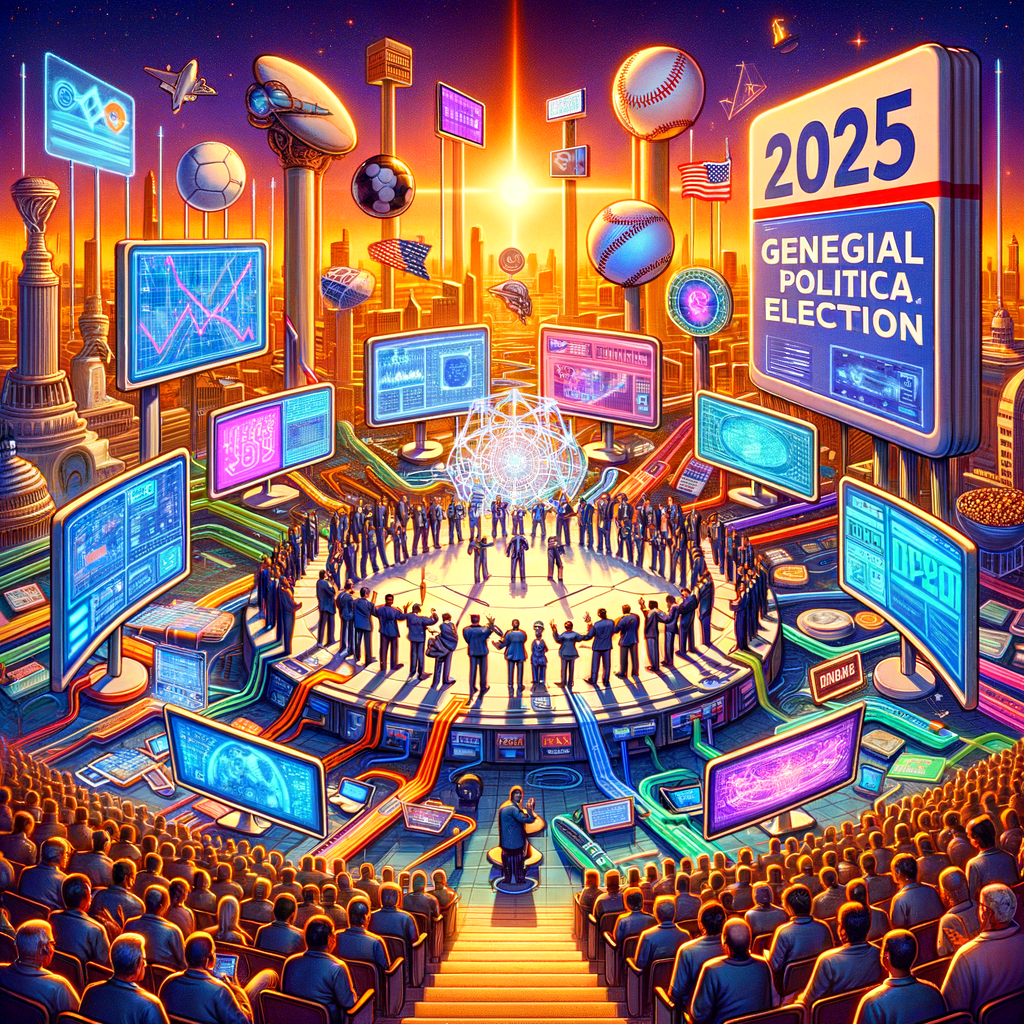The ever-evolving digital landscape has once again found itself at the intersection of politics and sports. With former U.S. President Donald Trump’s return to major social platforms like Twitter (or “X”) following his suspension, tech giants and sports leagues are facing a complex balancing act. The blend of sporting ethics, brand loyalty, and public perception now faces a unique challenge – one shaped by both the resurgence of a controversial political figure and the enormous platforms Big Tech provides him.
But this isn’t a simple case of deciding where the line between politics and sports is drawn. The relationship between sports leagues, their famous athletes, and the platforms they choose to distribute content on has never been more important. Now, with Trump back at the digital table, it seems Big Tech’s influence on sports is only growing — and navigating this landscape is shaping into a delicate dance for both sides.
The Digital Resurrection
After being banned from multiple platforms post the 2021 Capitol riots, Donald Trump’s return to the social media sphere has been orchestrated with a keen sense for the power and reach of these platforms. Twitter, which had permanently suspended the former president, made headlines for reversing its decision under Elon Musk’s ownership. Along with other platforms like Facebook and YouTube, this move reopened the gates for one of the most debated and divisive figures to re-engage with a vast online audience.
For sports leagues – from the NFL to the NBA to Soccer Leagues like the Premier League – this has added a new ripple in their digital dealings. Sporting organizations rely heavily on their relationships with tech giants to broadcast games, promote products, and connect directly with fans. Now, they might also need to factor in how platforms’ decisions shape the dynamics of political influence and public debate, particularly with a figure like Trump rejoining the digital realm.
Big Tech’s Crown Jewels: Sports Content
There are a few unique areas where Big Tech and major sports leagues intersect to create a symbiotic relationship. They include broadcasts, live-streaming, and fan engagement. Tech platforms act as the go-to digital venues where sports can thrive, and overlooking the long-term impact of political content costs leagues more than they’d like to admit.
Sports content forms the crown jewel of engagement for platforms:
- Live sports generates millions of views and ad dollars
- A consistent, loyal fanbase drives page visits
- It spurs huge social media interaction and population-specific targeting
Leagues depend on this engagement. The NFL, inking deals with the likes of Twitter for regular season highlights, or the NBA extending its social media presence to younger audiences through Instagram, showcases just how crucial this digital heartbeat is to expanding their global footprint.
However, with Trump’s return, the very platforms that sports leagues use to display and distribute content could now be swept up in yet another political firestorm. Platforms like X, YouTube, and Facebook that once suspended Trump now facilitate his return. This introduces a tricky dilemma for sports leagues: how do they navigate fan passions when those same platforms might be playing host to political controversy?
The Audience Dilemma: Aligning with Platform Giants
For leagues, aligning with tech companies has given them broad access to global audiences, particularly at a time when cable television’s dominance has waned. More eyeballs have shifted to online platforms, and sport has followed – but there’s an asterisk. These digital spaces aren’t just for athletics anymore. They’re homes for content that includes divisive political rhetoric, which means sports leagues thrumming with politically neutral or diverse viewerships now find themselves, somewhat tangentially, at the risk of associations their brands may not love.
This position invites a challenge, notably:
- What happens when sports content overlaps with users engaging with political narratives?
- Can leagues draw lines of differentiation between their partnership with platforms and the political actors those platforms host?
- How do sports franchises keep fan engagement high without finding themselves dragged into political polarization?
These questions loom especially large for major U.S. leagues like the NFL, where a huge chunk of the fanbase spans every aisle of public opinion, or for international leagues like European football that attract global, culturally dynamic audiences.
Platform as a Stage; Athletes as Voices
Then comes another equally intriguing angle: the athletes themselves. Pro athletes, aware of just how much sway their social media presence carries, are increasingly leveraging their platforms for political expressions. LeBron James, for instance, has used Twitter to voice his opinion on various political issues, while Colin Kaepernick became a globally recognized figure by taking a knee to protest racial injustice – all actions drawn into greater visibility thanks to digital spaces.
Against this backdrop, fans tune in to follow their favorite athletes while simultaneously consuming content across massive tech platforms that now host political personalities – including Trump. For teams and the leagues they play in, this intertwining of sport, politics, athletes, and tech becomes a sprawling landscape to manage.
How willing are leagues to amplify or intervene in their athletes’ engagement? It’s a question with no easy answers. With politics blending in at the drop of a tweet, sports leagues may either be pulled into the pushback or forced to mediate.
Trump’s Value for Tech Giants
Trump’s return also makes him valuable content. With his immense following and propensity to stir engagement (favorably or not), platforms are bracing themselves for a surge in clicks, retweets, comments, and views. Tech loves this. Eyeballs are currency in Silicon Valley, and Trump is a walking stimulus package for platform analytics.
But that leaves leagues like the NBA – and their brand deals – wondering how to sidestep backlash if the platform shifts to become more politically polarized. While platforms may welcome Trump back as an engagement driver, sports leagues have a reputation to guard, and with that, corporate relationships to maintain.
Advertising dollars could be at risk. Big brands may reconsider their partnerships with sports leagues tied to platforms enveloped in controversy, particularly if the platform is suddenly overrun by heated political discourse — content they might find conflicting with their stance.
The Future of Sports-Tech Relationships
As sports leagues continue to lean into digital platforms to engage their fanbase, they will inevitably have to become more nimble as they navigate the fallout of external forces. Will platforms continue to walk the double-edged sword of maximizing engagement – even if it drives political narratives – while simultaneously hosting sports content? Or will tech companies have to recalibrate how they prioritize content when sports, the world’s number one leisure activity, is such a significant part of their revenue?
It’s hard to imagine leagues pulling back from major digital partnerships; the gains are too rich to forsake. But now, a more refined calculation will come into play for both tech platforms and the leagues themselves as Trump’s digital presence continues to stir the pot. It will be a battle not just to capture attention, but to control the narratives around the very platforms where eyeballs converge – and for sports leagues caught in the middle, the stakes have never been higher.
—
The digital crossroads between sport and politics is expanding. As Trump resumes his digital influence, the dance between sports leagues and Big Tech will only get more interesting. The dilemma will stand: is the value gained from millions of views strong enough to shield potential reputational erosion in this era of hyper-partisan social networking?
Time, fan loyalty, and strategic marketing will be the ultimate referees.










